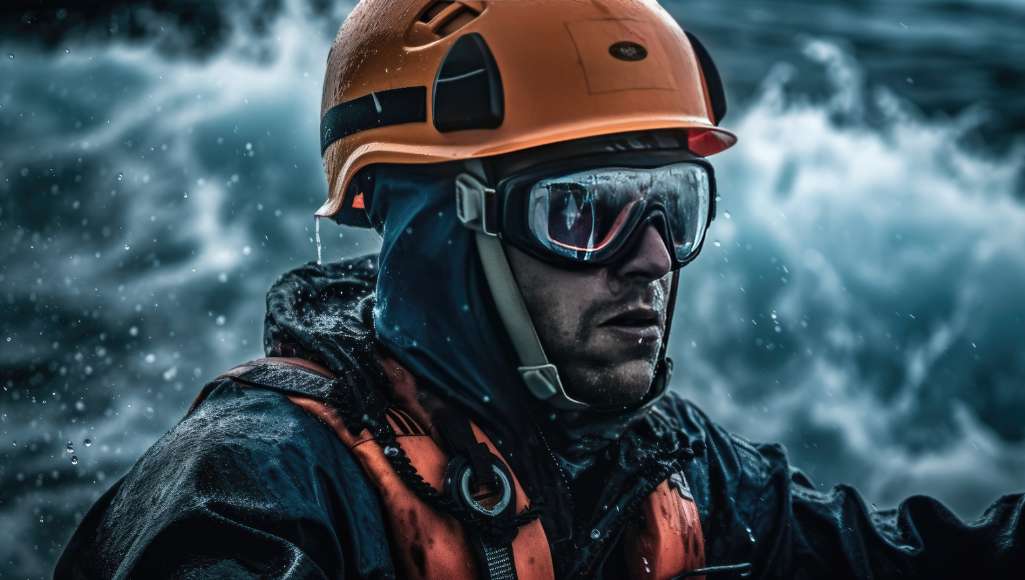
Mental Health Resilience at Sea
Working at sea presents many health challenges, from irregular hours to limited food options, to the ever-present risk of accident or injury. However, maritime work also poses threats to mental health – far higher, in fact, than most land-based jobs. Seafarers deal with elevated stress, isolation and loneliness, while women are also at risk for sexual harassment and even assault.
To add insult to injury, mental and emotional health issues have long been overlooked, dismissed or worse, treated as personal or moral failures rather than as medical problems that need to be recognised, diagnosed and treated.
Right now, it’s important for maritime stakeholders to acknowledge the urgent mental health situation at sea. At a time when our industry is trying to solve a rapidly worsening crew shortage, mental health resilience should be an integral part of any strategy for crew asset management and labour loss prevention.
The Concept of Health and Wellness
What is good health? It may seem like a question with an obvious answer, but for the purposes of this article, it will help to establish a baseline for what it means to be well, both physically and mentally.
The World Health Organization's (WHO) defines health as “a state of complete physical, mental and social well-being and not merely the absence of disease or infirmity.” Through research, we know that mental and physical health are interdependent; the deterioration of one typically results in problems with both, and vice versa.
According to the U.S. National Institutes of Health, good mental health includes a sense of self-efficacy, autonomy and competence, where the individual is able to cope with the normal stresses of life, work productively and contribute to their community. However, when this stress becomes abnormal or if people are poorly equipped to handle it, the result can destabilise individuals, companies and even entire industries.
The Challenges of Working at Sea
A career aboard a shipping vessel, offshore rig or other commercial maritime operation presents unique mental health challenges. Key risk factors include isolation, extended time at sea, limited space for both living and working, long and irregular working hours, poor sleep quality, physically demanding labour, and social problems that can arise within small, multicultural crews.
Research on seafarer mental health has shown that common pitfalls of the job, such as long-term separation from family and home, fatigue, high workloads and long voyages, can have serious consequences, including an increased risk of loneliness, depression, poor mental and physical health, suicide and more.
A 2016 study titled “Poor Sleep, Anxiety, Depression and Other Occupational Health Risks in Seafaring Population” found that depression correlates highly with sleep problems. Out of 1,000 cadets surveyed in the study, nearly half were sleep-deprived, 20 percent had anxiety and 7 percent suffered from severe depression. A separate 2018 joint study between Sailors’ Society and Yale University examined more than 1,000 seafarers, more than 25 percent of whom reported symptoms of depression but were reluctant to ask for help.
The Roles of Resilience in Mental Health
The American Psychological Association and other leading sources define mental health resilience as “the ability to adapt to difficult life experiences, especially through mental, emotional, and behavioral flexibility.”
Resilient people, they explain, prepare to face challenging feelings and situations by developing an arsenal of tools, from personal strength to reliable support systems, both social and professional. But how do resilient people become that way? It requires action. Building and maintaining resilience is an ongoing practice that includes:
- Self care: Meeting your own emotional needs, eating well, exercising, getting a healthy amount of sleep and nurturing relationships.
- Stress management: Practising ways to relax and let go of stress, including yoga, meditation, exercise, prayer and healthy hobbies.
- Problem solving: Instead of ignoring problems until they’re too big, talk about them. Ask for help in developing a solution, then take action.
- Realistic optimism: Not every part of every problem is solvable. Resilient people focus on solving what they can and using their tools to handle what they can’t in a healthy and productive way.
As the former U.S. president Theodore Roosevelt once said, “Do what you can, with what you have, where you are.” Even in the middle of the ocean, with minimal resources, you can take steps to improve your emotional resilience. Start thinking of how you can take care of yourself, instead of mainly thinking of ways to perform better. Practice speaking up about how you feel to avoid bottling up emotions and issues. When you get stuck in hopeless thoughts, focus on what you can do – even if it feels futile in the moment. Building resilience is an ongoing practice; not a one-time event.
Resilience in the workplace isn’t just good for seafarers, but also for operators. In the same way that preventing accidents can improve productivity and reduce expenses, better mental health is good for business. Building emotional resilience into your management strategy contributes to improved adaptability, performance and teamwork, and can help foster longer, healthier careers at sea.
The Time to Build Seafarer Resilience is Now
Mental health resilience is crucial for maritime professionals – not simply for their own personal well-being, but for enhancing crew safety and productivity. Maritime operators who invest in workforce resilience now will be more competitively positioned later, when the qualified labour market is even smaller.
As part of OneHealth by VIKAND, we’re working on a Resilience Project. The goal of this project is to improve OneHealth’s mental health programs and to make resilience a core part of our approach to crew asset management and loss prevention.
There are two dimensions to this: preventive and adaptive. On the preventive side, we identify applicants with “low” resilience to help maritime companies build a more sustainable workforce. On the adaptive side, we map resilience within existing teams and provide individualised training to strengthen mental well-being. Through ongoing check-ins, we can monitor progress and adapt our training and education tools as needed.
Through OneHealth, VIKAND offers a full suite of solutions that proactively support seafarer well-being, including:
- Emergency Care: 24/7 emergency and urgent care support from shoreside medical professionals.
- Emergency Mental Health: 24/7 access to consultation shoreside with mental health professionals.
- Monthly Medical Checkup: Monthly calls between vessel command and a dedicated shoreside doctor to discuss crew health issues and medical needs.
- Mental Wellness Awareness & Learning: Module-based online mental health training and education tools for crew members.
- Mental Health PEME: Comprehensive mental health assessments for both new crew hires and those who’ve been medically debarked.
For seafarers, mental fortitude is just as important to their performance as physical health. Resilient crews are happier, more productive and better equipped to work collaboratively and take on the many challenges of life and sea. Maritime operators who wish to know more about what they can do to build mental health resilience in crew members should reach out to VIKAND. We offer comprehensive services to foster human health and wellness for seafarers working across our entire industry.


